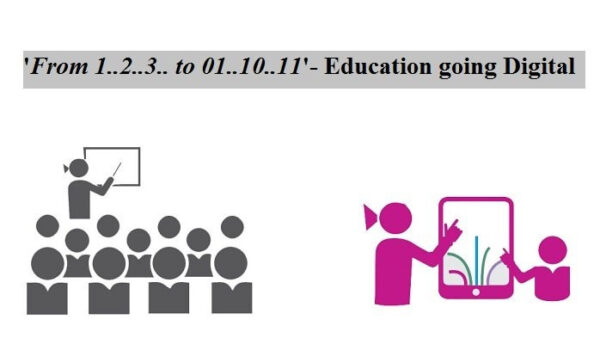Over the past decade, the Thai government, private sectors, and tech-savvy entrepreneurs have embraced digital transformation, fostering an innovative ecosystem.
Thailand’s use of advanced digital technologies and the trends influencing its future are examined in this blog.
E-Commerce And Fintech Revolution
Due to widespread smartphone use and strong internet penetration, Thailand’s e-commerce sector has experienced exponential growth. Online shopping has become a daily routine due to the dominance of platforms like Shopee, Lazada, and JD Central. This ecosystem is further enhanced by digital wallets that facilitate smooth transactions, such as TrueMoney, Rabbit LINE Pay, and PromptPay.
The fintech sector has also accelerated, with creative entrepreneurs providing solutions such as AI-powered investment platforms, blockchain-powered remittance services, and peer-to-peer financing. For instance, Bitkub, one of Thailand’s top cryptocurrency exchanges, has advanced blockchain technology and increased accessibility to digital assets.
Advancements In Healthcare Technology

Digital technology has been adopted by Thailand’s healthcare industry, completely changing the way services are provided. By providing virtual consultations and health monitoring, telemedicine platforms such as MorDee and Chiiwii are helping to close the gap between patients and physicians.
Additionally, advancements are being made in AI-powered diagnostic tools. AI has being incorporated by hospitals such as Bumrungrad International to evaluate medical imaging and make previously unheard-of predictions about health concerns. Additionally, blockchain technology is being used to manage patient data in a safe and effective manner.
Digital innovation has also helped Thailand’s reputation as a medical tourism hotspot. International patients now have easier access to the nation’s excellent healthcare services thanks to the incorporation of virtual reality (VR) facility tours and efficient online appointment scheduling.
Education Goes Digital

Thailand’s education system has seen a rapid acceleration of digital change, particularly in the wake of the COVID-19 pandemic. EdTech platforms that provide online classes in a variety of subjects, like ClassIn, Learn Corporation, and SkillLane, have grown in popularity. These systems use artificial intelligence (AI) to produce tailored learning experiences and guarantee efficient retention of information.
Moreover, augmented reality (AR) and VR are being incorporated into curriculums, providing immersive learning experiences. For example, students can conduct virtual science experiments or explore historical locations in three dimensions, which enhances the interactiveness and interest of learning.
The Rise Of 5G Technology

One of the first nations in Southeast Asia to implement 5G technology is Thailand. The Internet of Things, driverless cars, and smart manufacturing are all advancing as a result of this connection revolution. 5G is already being used by sectors like retail and logistics to improve customer experiences and streamline operations.
Leading automakers like Toyota are testing driverless cars in Thailand, utilizing 5G to provide smooth connectivity between automobiles and infrastructure. In a similar vein, firms are implementing smart manufacturing strategies, using sensors and robots to optimize productivity.
Blockchain And Digital Identity Systems
In Thailand, blockchain technology is becoming more and more popular, especially in the fields of finance, real estate, and government. Blockchain-based technologies have been implemented by the government for digital identity verification, land registry, and tax collection. These programs seek to decrease bureaucracy and increase openness.
Blockchain technology has also been adopted by Thailand’s Securities and Exchange Commission (SEC) to oversee the expanding cryptocurrency sector. This proactive strategy fosters innovation in the field of digital assets while guaranteeing a secure environment for investors.
Artificial Intelligence In Everyday Life
In Thailand, artificial intelligence is becoming noticeable in a number of industries. AI is changing conventional methods, from chatbots in customer support to predictive analytics in agriculture.
For example, AI-powered drones and sensors that track crop health, adjust irrigation, and forecast weather patterns are useful in the agriculture industry. Similar to this, major Thai retailers like Central Group employ AI to study customer behavior and provide tailored shopping experiences.
Challenges And The Way Forward
Thailand’s journey towards digital transformation is fraught with difficulties, despite notable advancements. Since rural communities sometimes lack access to dependable internet and technology, closing the digital gap continues to be a top goal. Concerns about cybersecurity must also be addressed because of our increasing reliance on digital platforms.
The public and commercial sectors must work together on projects that support infrastructure development and digital literacy in order to overcome these obstacles. Thailand will become even more of a digital leader in the region if it promotes investments in startups and cultivates an innovative culture.
Conclusion
Thailand’s economy and society are changing as a result of its adoption of new digital technologies, providing a window into a tech-driven future. The nation’s dedication to innovation is demonstrated by its smart city initiatives and AI-powered solutions. Thailand is well on its path to becoming a global leader in digital transformation by tackling current issues and keeping an optimistic outlook.
FAQs
How does Thailand 4.0 affect digital technology, and what does it mean?
A national program called Thailand 4.0 seeks to use cutting-edge technologies including artificial intelligence (AI), the Internet of Things (IoT), blockchain, and 5G to turn Thailand into a knowledge-based economy. It focuses on using digital innovation to improve important industries like urban development, healthcare, education, and agriculture.
How is 5G technology being used in Thailand?
Thailand has embraced 5G technology for a number of uses, such as logistics, smart manufacturing, IoT, and driverless cars. 5G is being used by industries to improve operational efficiency and create new solutions, such as real-time device-to-infrastructure connectivity.
Which financial products are most widely used in Thailand?
Digital wallets like TrueMoney and Rabbit LINE Pay, cryptocurrency exchanges like Bitkub, and AI-powered investing platforms are all part of Thailand’s fintech sector. These solutions provide users with cutting-edge financial services and streamline transactions.
In what ways is digital technology enhancing Thailand’s tourism industry?
By providing AI-powered chatbots for travel-related questions, virtual tours, and intelligent airport kiosks, digital technology improves tourism in Thailand. It also helps promote lesser-known destinations through interactive maps and AR applications.
What obstacles does Thailand encounter on its path to digital transformation?
Addressing cybersecurity issues, increasing digital literacy, and closing the digital divide in rural regions are some of Thailand’s main difficulties. To overcome these challenges, cooperation between the public and commercial sectors is crucial.
 Gearfuse Technology, Science, Culture & More
Gearfuse Technology, Science, Culture & More


